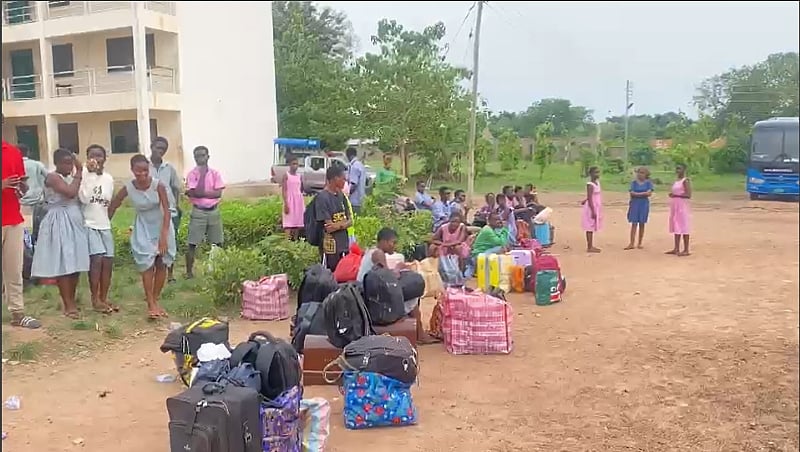The recent clash between students of Sokode Senior High Technical School (SHTS) and community members prompted the formation of the Alexander Mawusi Boadi Committee to investigate the incident and propose solutions. The committee, after meticulous investigation involving testimonies from 43 individuals, submitted a comprehensive 42-page report to Volta Regional Minister, James Gunu, on April 14th. The report details the events leading up to the clash, identifies key contributing factors, assesses the extent of the damage, and recommends actionable steps to prevent future occurrences. The incident highlights the growing concern of drug use and indiscipline among students and underscores the urgent need for collaborative action from all stakeholders to address these issues within the school environment and the broader community. The report estimates the financial impact of the clash to be around GH¢175,000, covering damage to both school property and community businesses.
A central theme emerging from the committee’s findings is the widespread concern over escalating drug use and indiscipline among the student population. The report suggests that this growing problem played a significant role in instigating the clash and emphasizes the need for targeted interventions to address substance abuse and promote responsible behavior within the school. Additionally, the report highlights the importance of strengthening communication and collaboration between the school administration, parents, and community leaders to create a more supportive and structured environment that discourages such incidents. The recommendations also advocate for greater involvement from law enforcement agencies to monitor and address illicit drug activities in and around the school premises.
The committee’s report specifically recommends disciplinary action against the students identified as being directly involved in the clash. This action aims to hold those responsible accountable for their actions and deter similar behavior in the future. Furthermore, the report emphasizes the importance of ensuring fair and just processes in determining culpability and administering disciplinary measures. The committee also addressed the issue of compensation for those who suffered losses during the clash. The report states that individuals and businesses affected by the incident will be considered for compensation upon verification of their claims. This step aims to provide financial relief to the victims and repair the damaged relationship between the school and the community.
The deputy Volta Regional Director of Education, Mrs. Mariam Adzroe, in her communication with Citi News following the report’s submission, elaborated on the recommendations and underscored the importance of community involvement in addressing the underlying issues. She confirmed the committee’s recommendations for disciplinary measures against culpable students and compensation for those impacted by the destruction, based on verifiable documentation of their losses. This reflects a commitment to both accountability and restorative justice in dealing with the aftermath of the clash. Adzroe stressed the interconnectedness of the school and the community, highlighting the need for shared responsibility in fostering responsible student behavior.
Adzroe further advocated for proactive measures to prevent future incidents by addressing contributing factors identified in the report. One such recommendation focuses on improving access to essential resources within the school. Specifically, the committee suggested drilling a borehole on school grounds to provide a readily available water source for students, particularly female students. This would reduce the need for students to venture outside the school premises, minimizing potential interactions with the community that could escalate into conflict. This proposal demonstrates an understanding of the practical challenges faced by the students and the need for proactive solutions to mitigate risks.
In her concluding remarks, Adzroe issued a call to action for all stakeholders, including school administrators, parents, community leaders, and government agencies, to collaborate in addressing indiscipline in schools. She emphasized that the responsibility of nurturing well-behaved and responsible students is a shared one that extends beyond the confines of the school. By fostering a collaborative approach, Adzroe urged stakeholders to contribute to creating a supportive environment where students could thrive academically and develop into responsible future leaders, thereby contributing positively to the nation’s progress. This encapsulates the long-term vision of creating a holistic and nurturing educational environment that benefits both the students and the broader community.














